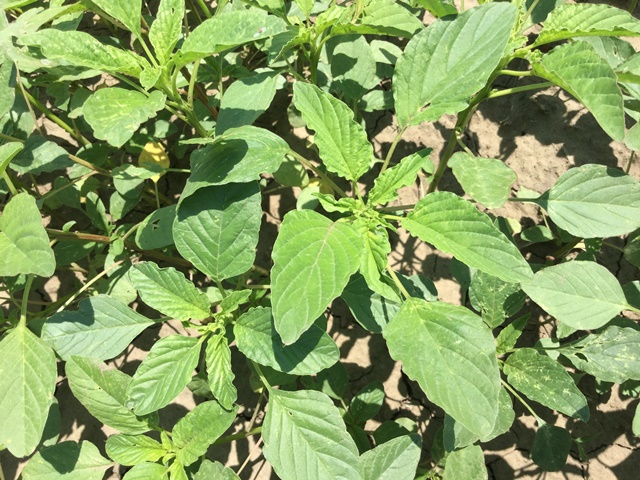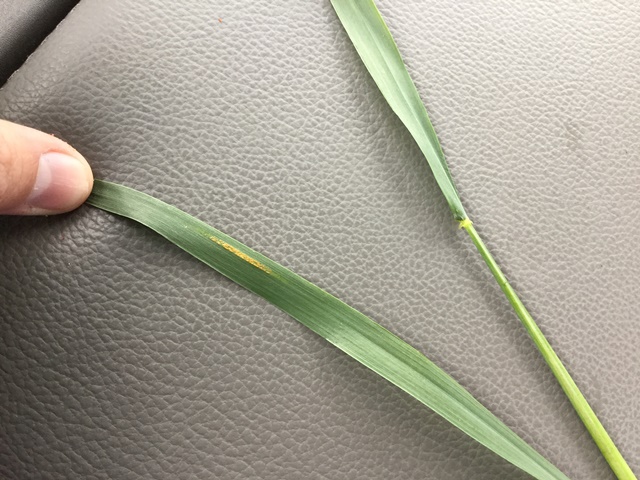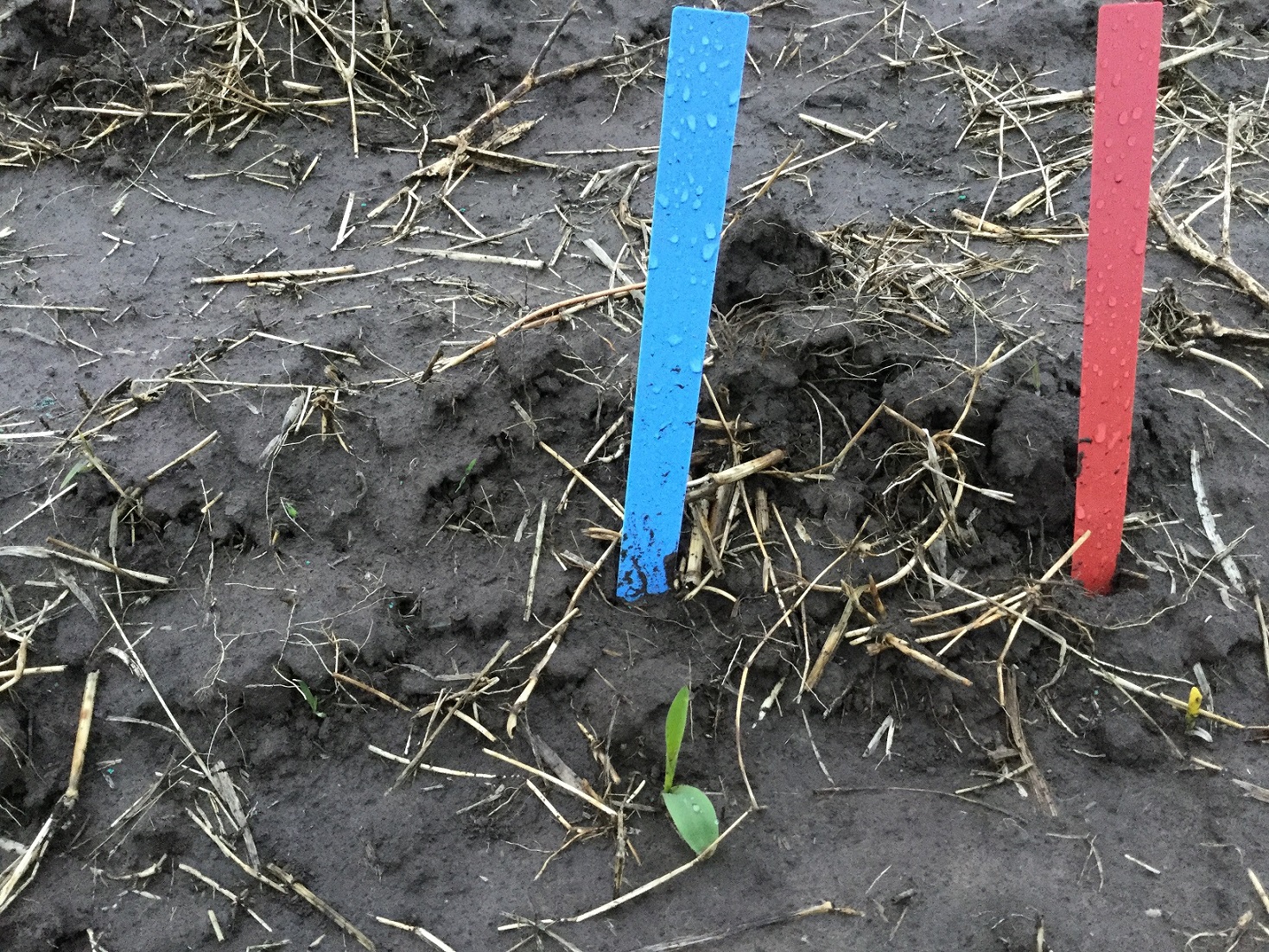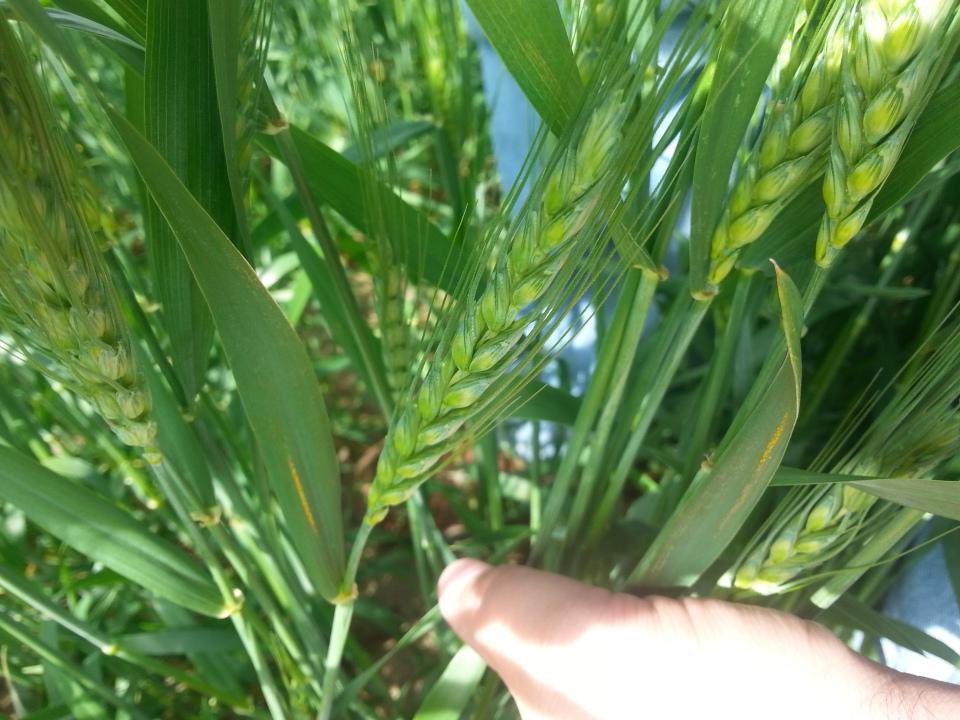2017
Average Soil Test - Article
What is the average soil test in Southeast Kansas? This simple question, like many simple questions, is in fact quite complex when statistics are involved. The common soil test includes three major tests, Soil pH, Phosphate ppm, and Potash ppm. The K-State Soil Testing Lab uses the Mehlich-3 extraction method for extracting and measuring phosphate. In this article, the 2017 averages across the four counties in the Wildcat District are examined.
- Dec. 27, 2017
Value of Crop Insurance - Audio
How important is crop insurance to the survivability of farms? With the upcoming new farm bill currently being worked on, one of the areas that is constantly being discussed is the subsidies for crop insurance. The K-State Agricultural Economics Department has tried to quantify just how important crop insurance is, and in this clip we will hear from Dustin Pendell K-State Research & Extension Ag Economist as he talks about that research.
- Dec. 21, 2017
2018 Custom Rates - Audio
One of the more commonly asked questions an extension agent receives is how much should I charge or should I pay for certain farming operations. Our go to resource for this information is the Custom Rates Spreadsheet which the K-State Agricultural Economics Department published every year. In this clip we will hear from Greg Ibendhal, K-State Research & Extension Farm Management Specialist as he talks about Kansas Custom Rates as he is the main contributor for the resource.
- Dec. 14, 2017
Winter Wheat Hardiness - Audio
We don’t tend to worry about wheat winter hardiness in southeast Kansas, but I do occasionally get the question on it. It is more of an issue for our friends in western Kansas, but wheat has some defense mechanisms that help tolerate extreme cold as well as being impacted by environmental factors. In this clip we will hear from Romulo Lollato, K-State Research & Extension Wheat Specialist as he talks about what factors impact wheat winter hardiness,
Dec. 7, 2017
Temperature Inversions - Audio
Before the release of dicamba tolerant crops, temperatures inversions were not really discussed at all. However, now that dicamba has dominated the crop production headlines throughout the U.S., temperatures inversions have became a talking point. In this clip, we will hear from Chip Redmond, K-State Research and Extension Kansas Mesonet Manager, as he discusses temperature inversions and a new service available on the Mesonet which can be useful to producers.
- Nov. 23, 2017
Soybean Cyst Nematode - Audio
In a recent study, it was estimated that 20 percent of Kansas crop ground was infested with soybean cyst nematode, which is more commonly called SCN. However, in southeast Kansas, those percentages are even higher. In fact, 100 percent of the fields tested in Cherokee County were found to contain the pest. In this clip we will hear from Doug Jardine K-State Research and Extension Row Crop Plant Pathologist as he talks about SCN.
- Nov. 16, 2017
Cover Crops Study - Audio
The K-State Agronomy Department recently hosted a cover crops field day near Manhattan. One of the studies discussed during the event was a 10 year study conducted by K-State Research and Extension Cropping Systems Specialist Kraig Roozeboom. In this clip we will hear from Kraig as he discusses the study. The study consists of 4 cover crop treatments in a no-till system, 2 in the winter and 2 in the summer.
- Nov. 9, 2017
Soil Test Economics- Article
Fall is an excellent time to soil test, but with commodity prices where they are, logic may say that now is not the time to spend money for soil testing. However, research has shown that the economics of soil testing is actually better when crop prices are low. When prices are low, all management decisions must be thoroughly scrutinized. Fertilizer input is one of the areas that producers have ultimate control over. With tight margins, over-applying an unneeded amount or under-applying a yield limiting amount could mean the difference between a profitable year, or the alternative.
- Nov. 1, 2017
Trends in Agriculture- Article - Audio
It's hard to believe 100 years ago, few farms had electricity or running water and the average value of land in Kansas was $35.45, according to the 1910 Census of Agriculture (which, by the way, was a 177 percent increase from the $12.77 value in 1900). Agriculture has certainly changed in a century, but we can even see changes from one census to another. Every five years, the Census of Agriculture sends out surveys to get a snapshot of farms across the United States. As we anxiously await the results of the 2017 census, we can find several trends occurring in agriculture across the country by comparing recent reports.
Increased Interest in No-Till - Article
In a classroom setting, if one student asks a question, it is a good assumption that many others were also thinking about it. If that holds true for farmers, then quite a few southeast Kansas producers are considering converting to no-till or at least minimum till, operations. Multiple producers have mentioned there biggest concern with converting to no-till is the cooler soil temperatures, especially during corn planting. This article explores the difference between bare soil and residue covered soil temperatures.
Sept. 9, 2017
Cover Crop Agronomics - Audio
Cover crops have been gaining more and more attention over the last few years. In our normal crop rotation of corn wheat double crop beans, there is very little space to fit a cover crop in. However, with wheat acres declining rapidly, there are more acres that a cover crop could fill. In this clip we will hear from Kraig Roozeboom, K-State Cropping Systems Specialist as he talks about the agronomics of growing cover crops.
- August 18, 2017
Wheat Variety Publication Update - Audio
A very useful K-State Research and Extension Publication now has even more information. For many years, the Agronomy, Entomology and Plant Pathology extension groups co-authored a wheat disease and insect ratings publication. However, that publication has now been upgraded to include other important agronomic characteristics as well. In this clip we will hear from Romulo Lollato, K-State Research and Extension Wheat Specialist as he discusses these improvements.
- August 11, 2017
Palmer amaranth - Article
 Up to 80 to 90 percent off! In retail, this is called a loss-leader, but when those figures apply to crop yields, it’s called a nightmare. The presence of pigweeds is definitely not breaking news in southeast Kansas. However, a different pigweed species has been found which is extremely worrisome. Palmer amaranth (Amaranthus palmeri) has been confirmed in southeast Kansas and it is a completely unwelcome guest. Click on this article to read more about this troublesome development.
Up to 80 to 90 percent off! In retail, this is called a loss-leader, but when those figures apply to crop yields, it’s called a nightmare. The presence of pigweeds is definitely not breaking news in southeast Kansas. However, a different pigweed species has been found which is extremely worrisome. Palmer amaranth (Amaranthus palmeri) has been confirmed in southeast Kansas and it is a completely unwelcome guest. Click on this article to read more about this troublesome development.
- August 10, 2017
Risk and Profit Conference - Audio
With commodity prices low, producers must consider their management decisions critically. The K-State Agricultural Economics Department is hosting their annual Risk and Profit Conference on August 17 and 18th in Manhattan and registration is now open. Expected presenters include Matt Erickson, the Chief Economist for the US Senate Agriculture Committee, Bill Came, Saline County producer, and multiple K-State Agricultural Economics Department staff. In thisclip we will hear from Rich Llewelyn Agricultural Economics Extension Assistant as he talks about the conference.
- July 31, 2017
Wild Wheat Relative - Audio
Raise your hand if you have ever heard of wild Emmer. This ancient crop is a relative of the wheat we have just harvested. In fact, it is very closely related to durum wheat, which is the wheat that is best suited for pasta production. The K-State Wheat Breeding program is trying to utilize wild Emmer, which grows naturally in the middle east, for some of its genetic potential. In this clip we will hear from Allan Fritz, K-State Wheat Breeder as he discusses how his program is trying to utilize this historic precursor.
- July 18, 2017
Future of Ag in SEK - Article
Imagine if you can what the agricultural industry will hold in the year 2040. This was the topic discussed at the “Tomorrow’s Ag Starts Today” conference held in Ulysses on July 12. While this particular event was focused on southwest Kansas, the idea can be applied to the rest of the state, in particular our corner of southeast Kansas. I had the pleasure of presenting about our main crops and the genetic potential therein. I figured if we are thinking about 23 years in the future, it makes sense to consider the past 23 years. There has been considerable change in our cropping systems across the state and in southeast Kansas since 1994 according to the National Agricultural Statistics Service (NASS).
- July 14, 2017
2016 Enterprise Budgets - Audio
The Kansas Farm Management Association recently released their Kansas Farm Income Summary for 2016. While this document is packed with tons of information, some of the most interesting are the crop production enterprise budgets on a statewide and area basis. These show crop by crop the profit or lack thereof of all of the crops planted in Kansas. In this clip, we will hear form Kevin Herbel, Kansas Farm Management Association executive director as he talks about the 4 major Kansas crops enterprise budgets.
July 6, 2016
Nutrient Availability - Audio
-May 26, 2017
Lady Bugs - Audio
-May 26, 2017
Lady Bugs- Article
-May 26, 2017
Soil Sampling - Audio
Proper Soil Sample Collection
Just like maintaining or servicing equipment, soil testing should become a routine examination of soil health. Correct soil sampling in the field is essential for an accurate and repeatable soil test, and consequently for an optimum nutrient management program. To obtain a proper collection, there are a few guidelines to follow.
- May 10, 2017
Herbicide Use - Audio
- May 2, 2017
Responsible Herbicide Use - Article
Herbicides are welcomed by many farmers and backyard gardeners because of their potential to eliminate much of the need for long hours of manual weed control practices. When used properly, herbicides can control a variety of unwanted weeds with little to no effort; however,
- May 2, 2017
The Value of Nematodes - Audio
An internationally-known soil scientist from Colorado State University spoke on the K-State campus about the importance of soil biodiversity to agriculture. Much of her research work focuses on soil nematodes. Diana Wall talks about the importance of nematodes and what roles they play in soil health.
- April 24, 2017
Murphy's Wheat Law - Article
 Unfortunately, for wheat grown in southeast Kansas, Murphy’s Law (Anything that can go wrong, will go wrong) tends to be the norm. Due to our environmental conditions, wheat diseases tend to thrive. However, with proper management, wheat can be a successful crop for producers. This years crop has been impacted by stripe rust, and may be infected with head scab. In this column, a wide variety of wheat pests are discussed.
Unfortunately, for wheat grown in southeast Kansas, Murphy’s Law (Anything that can go wrong, will go wrong) tends to be the norm. Due to our environmental conditions, wheat diseases tend to thrive. However, with proper management, wheat can be a successful crop for producers. This years crop has been impacted by stripe rust, and may be infected with head scab. In this column, a wide variety of wheat pests are discussed.
April 18, 2017
Alfalfa Weevil Control - Audio
- April 11, 2017
Diagnosing Corn Emergence Problems - Article
With warm temperatures forcing winter behind us, the new growing season begins with optimism for this year’s crops. Once the corn seed goes into the ground, the potential for a productive corn crop has begun. From this point forward, many factors can contribute to the yield potential and health of the plant.
- March 31, 2017
Diagnosing Corn Emergence Problems - Audio
- March 31, 2017
- March 24, 2017
Corn Emergence Factors - Article

I like to say that we “farm when we can” in southeast Kansas. Mother Nature tends to decide when we can get into fields so when conditions are acceptable, the tractors spring into action. As such, corn planting is progressing rapidly in southeast Kansas. There are some important factors that will decide the success of those plantings. Soil moisture and temperature are probably the most important factors and in this article, the current research project being conducted at the Parsons research station is discussed.
- March 25, 2017
When should we plant corn in southeast Kansas? Much of the time, corn planting is dictated more by when we can get in the field because of wet soils. Even so, there are a few things that should be taken into consideration in deciding when to plant corn for optimal yield.
- March 24, 2017
Understanding Herbicide and Soil Interactions - Audio
Herbicides have been widely used for many years as effective weed reduction tools. Understanding how they work and interact with other environmental factors will aid in more effective weed management decisions. The best source of information for herbicide use is the herbicide label. Always apply herbicides according to label directions. The herbicide label is a legal document, and an applicator is responsible for applying the herbicide according to label directions.
- March 8, 2017
Farm Lease Agreements - Article - Audio
A lease is a contract and terms of the lease will be interpreted and enforced in light of the contract law. It is important that both parties to a farm or ranch lease understand the details of their lease agreement and the laws that affect their lease. The types of land rental agreements vary widely from one farming area to another and these differences are often based on long-standing traditions. For crop production, there are three primary types of lease agreements. These include: fixed cash, crop-share or flexible lease.
- February 28, 2017
A New Approach To Wheat Genetics - Article - Audio
 Genetics is a powerful tool in a producer’s arsenal for most crops, but wheat genetics may be even more important than others. The K-State Wheat Breeding Program is using a new approach to address disease management, specifically the rust diseases that could impact future varietal decisions. This approach, call race non-specific resistance (or minor gene resistance) should provide a more sustainable disease resistance package for producers. In the audio clip, Dr. Allan Fritz, K-State Wheat Breeder offers a more in-depth discussion of their new efforts.
Genetics is a powerful tool in a producer’s arsenal for most crops, but wheat genetics may be even more important than others. The K-State Wheat Breeding Program is using a new approach to address disease management, specifically the rust diseases that could impact future varietal decisions. This approach, call race non-specific resistance (or minor gene resistance) should provide a more sustainable disease resistance package for producers. In the audio clip, Dr. Allan Fritz, K-State Wheat Breeder offers a more in-depth discussion of their new efforts.
- February 22, 2017
C hloride Benefits Wheat - Audio
Extensive field research at Kansas State University shows that the application of chloride can help improve crop yields, especially in wheat. K-State soil fertility specialist Dave Mengel talks about what chloride does for wheat and explains why chloride applications can help in Kansas conditions, as opposed to other regions.
- February 17, 2017
Wheat's Ability to Withstand a Freeze - Audio
Freeze injury of wheat through the winter is uncommon due to variety tolerance and good management practices, however; once wheat begins growing in the spring, it has little resistance to low temperatures. The stage wheat is in also dramatically affects the severity of injury to the crop.
- February 10, 2017
Xtend Soybean System - Audio
Full approval has now been granted for farmers to employ the new Xtend soybean production system. It’s built around new soybean varieties which are resistant to dicamba herbicide applications, giving growers an additional weapon against glyphosate-resistant weeds. K-State weed management specialist Dallas Peterson talks more about what this new alternative brings to soybean growers.
- February 1, 2017
Living on the Land, A New Series - Article 
If you were to estimate, what percentage of farms in Kansas are less than 100 acres, between 100 and 500 acres, and more than 500 acres? An entrepreneur came to my office and asked a similar question which has spurred me to consider the programs we have offered in the past and potential changes down the road. The answer to this riddle and more are included in this article. Also included is information concerning the Feb. 16 meeting in Girard covering Kansas Fence Law, Fruit Tree Pruning, and Local Foods Production.
- January 26, 2017
Farm Program Payments - Audio
A few years ago, the 2014 Farm Bill dominated discussions at many ag meetings. While the results that have followed in the subsequent years have left many producers questioning the efficacy of the program, the K-State Ag Economics department has developed an on-line interactive tool that producers can use to estimate the impact on their operations. In this clip, we will hear from Art Barnaby, K-State Research and Extension Risk Management Specialist as he talks about the tool.
- January 26, 2017
Hessian Fly - Audio
While planted acres of wheat are substantially lower across the state, there is still quite a bit planted. One of the biggest knocks on wheat is the multitude of pest issues that can cause problems. The most obvious for our area tend to be fungal diseases, but an old wheat adversary is rearing its ugly head this year, the Hessian Fly. This week will hear from Jeff Whitworth, K-State Research and Extension Entomologist as he talks about the presence of Hessian fly this year.
- January 20, 2017
Diminishing Farm Returns- Now What? - Article - Audio
In conjunction with the Kansas State Ag Econ department, we recently hosted a meeting that focused on ten considerations to make during a struggling farm economy. While increasing the farm income may be a daunting task for the upcoming year, there are usually some places to cut costs in all farming operations. A major focus of the meeting was to re-assess all areas of the farm operation and determine how to stay afloat during these tough economic times.
- January 6, 2017